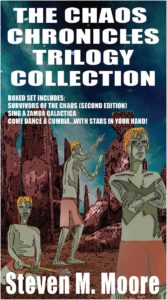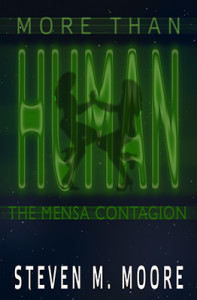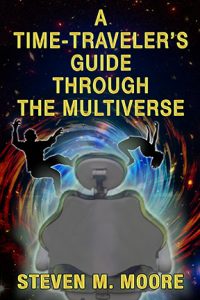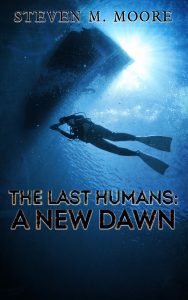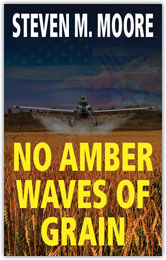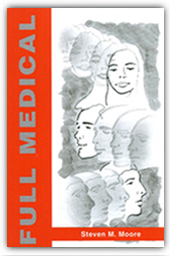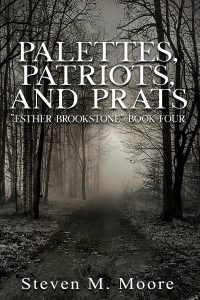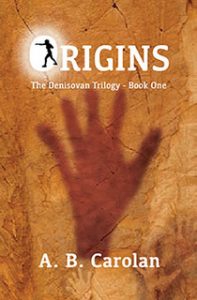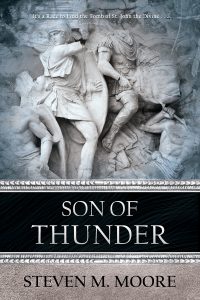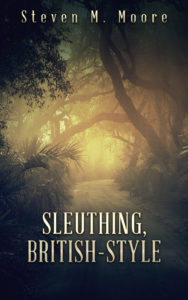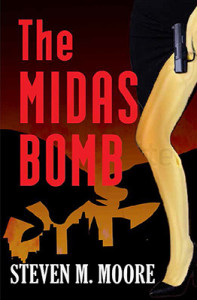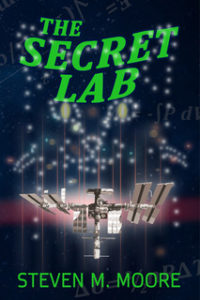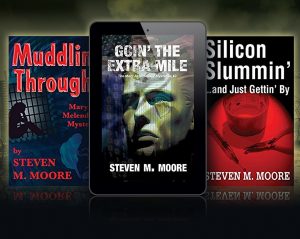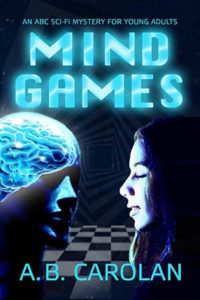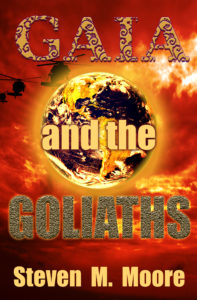They are rarely provided by governments now as huge conglomerates spread their tendrils around the world to strangle all competition. I’ve just considered Facebook, that online behemoth that has damaged everything from our youth to our democracies, yet is allowed to compete with other online services by swallowing them up in its evil maws. That’s one place that pisses this reader and author off. Another is found in the publishing industry.
The Big Six publishers were reduced to the Big Five when Random House gobbled up Penguin. Now Penguin Random House wants to swallow Simon and Schuster. Where are the antitrust and anti-monopoly protections?
There are two problems here for a reader like me. First, the huge publishing conglomerates emphasize hardbound, print books over ebooks because that’s where they can scam the reading public most efficiently. I hate print and avoid it wherever possible. You have to wait forever to get an ebook version for the rare good book published by one of these conglomerates, for one thing; and that rare, good book is rarely kept on my bookshelf because they’re doorstoppers that take up to much space and make the shelves sag. I only read hard-bound books when relatives or friends give them to me, or they’re the only published version available when I write a review (those are often free, but the price tags are usually around $30—I can buy up to ten ebooks for that price, although not from the Big Five).
The latter indicates the extent of how the book-publishing conglomerates flaunt the antitrust and anti-monopoly laws. Let’s consider the last four of my reviews of hardbound books: Klobuchar’s Antitrust, Leonnig’s Zero Fail, McMahon’s A Good Kill, and Woodward and Costa’s Peril. All were free (or I wouldn’t have read them), and all are involved with one of those nefarious Big Five conglomerates, Penguin Random House, in one way or the other. This beast publishes about 15,000 books per year. Let’s ignore for the moment that most of those books, including three of the four I mention, would mostly be lost to average readers who don’t keep up on the new books. (I do, whether I read them or not.)
Klobuchar’s, published by Borzoi, which in turn is part of Alfred A. Knopf, now owned by Penguin Random House, illustrates the problem. This monster publisher is huge! Ironically, and for obvious reasons, Klobuchar mentions how big publishing conglomerates are eating up smaller publishers, an example of what she rails against in her book, making me wonder if she’s truly serious about protecting consumers against trusts and monopolies. Apparently her fat contract received because she’s a celebrity politician muted her critique; or worse, her publisher, kept her from saying too much. A bribe leading to muzzling? I wouldn’t put it past Penguin Random House.
Leonnig’s Zero Fail is the only book published by Random House in my list and not one of Penguin Random House’s imprints (unless you now call Random House an imprint of Penguin Random House?). McMahon’s A Good Kill, the only fiction in the list (it’s a thriller), is published by G. P. Putnam’s Sons, one of the old publishers that, you guessed it, is now part of Penguin Random House. Finally, Woodward and Costa’s Peril is published by Simon and Schuster, another old publisher that will be consumed by Penguin Random House, unless the latter’s voracious appetite is stopped.
I don’t know if all this isn’t some giant conspiracy by the big publishing conglomerates to maintain control over the book industry. They fear self-publishing and small presses alike. They eat up the latter if they’re successful, a la Facebook. They can’t do anything much about self-publishing. Self-published authors are the ones I read most because that’s where the good books are usually found! Twenty-five to one would be my estimate. And those are the books I keep (as ebooks on my Kindle or laptop).
Of course, the Big Five aren’t the only ones playing these monopolistic games. Amazon wants to play in that space too, beating them to the punch by gobbling up Thomas Mercer, for example, which is as snooty and against self-published books as any Big Five conglomerate. Things can only get worse, and readers will continue to suffer all this monopolistic activity.
The Biden administration has sued to stop Penguin Random House from swallowing Simon and Schuster. I hope they succeed, but I fear it’s too late, that we’re beyond the tipping point, as is the case for many multinational corporate enterprises. I will continue to fight these monopolistic trends as much as I can. I might have parted with my own two small presses, but I hope they can remain independent. I doubt they will be able to do so, though.
***
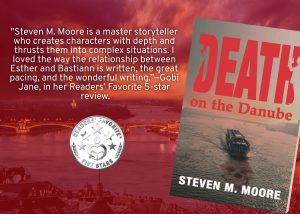
Comments are always welcome.
Death on the Danube. While you shouldn’t consider this the last novel in a trilogy (as the publisher of the first two books in the “Esther Brookstone Art Detective” series wanted—there are two more novels in the series, making it into a “pentalogy”), it represents an inflection point in Esther’s long life. In the first two novels, Esther and Bastiann are older lovers, both a bit hesitant about a twilight marriage; but they’re married in this story and on their honeymoon, a riverboat cruise down that famous river. They can’t escape their past as accomplished sleuths, though, because Interpol agent Bastiann must lead a murder investigation onboard the riverboat. For a visual preview, see the trailer. Available wherever quality ebooks are sold, and there’s also a print version.
Around the world and to the stars! In libris libertas!
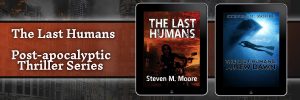 One charge against Amazon in that article describes how I’ve been victimized all too often by the retail giant: Bots have taken over that “online bookstore.” There are no humans in charge, so you can’t find a real person to help you, no matter how hard you try. My most painful experience where an attack of Amazon bots occurred was when they confused the two books in “The Last Humans” series. I could get neither human nor bot to fix that. (Fair warning if you want to purchase both books on Amazon—you’ll need a lot of patience and need to follow the instructions in red on my “Books & Short Stories” web page to do it. You’ll make your life easier by buying them from B&N.) Probably not surprising, but that was the straw that broke this camel’s back: I’ll never put any more new ebooks up for sale on Amazon again!
One charge against Amazon in that article describes how I’ve been victimized all too often by the retail giant: Bots have taken over that “online bookstore.” There are no humans in charge, so you can’t find a real person to help you, no matter how hard you try. My most painful experience where an attack of Amazon bots occurred was when they confused the two books in “The Last Humans” series. I could get neither human nor bot to fix that. (Fair warning if you want to purchase both books on Amazon—you’ll need a lot of patience and need to follow the instructions in red on my “Books & Short Stories” web page to do it. You’ll make your life easier by buying them from B&N.) Probably not surprising, but that was the straw that broke this camel’s back: I’ll never put any more new ebooks up for sale on Amazon again!
